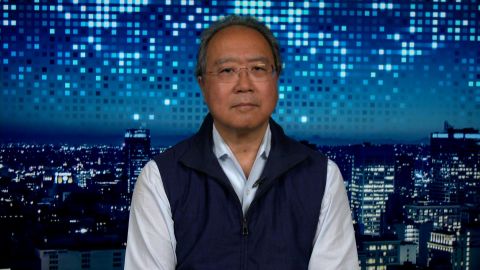Read Transcript EXPAND
YO-YO MA, CELLIST: Lately, I have realized that the time that I spent in nature is what brings me back to something much bigger than myself. And I’m going to ask you a question, it brings me to wonder. So, here’s a question for you. Who said this? A shaman, a scientist or an artist? Nature has the greatest imagination, but she guards her secrets jealously. Who said that?
CHRISTIANE AMANPOUR, CHIEF INTERNATIONAL ANCHOR: OK. I’m going to say it was a scientist.
MA: You are so right.
AMANPOUR: Quizzed by Yo-Yo Ma.
MA: A plus.
AMANPOUR: OK. So, what is your message?
MA: Richard Feynman.
AMANPOUR: Yes. Go ahead.
MA: Well, Richard Feynman is the physicist that said that.
AMANPOUR: Yes.
MA: And the message that I am trying to figure out for myself is, are we part of nature or are we separate from nature? And part of what I have found out so far is that there are two different groups of people that hold old knowledge and new knowledge, and I am fascinated by what happens when they come together, when we visit those natural spaces. And these peoples are indigenous folk, natives and scientists. So, I think that we know so much. We have such capacity. But in fact, so much of that capacity, what is the purpose for it? You know, if it’s for to advance humanity, that is one thing. But if we are talking about, as our last interview, he said, you know, there is a distinct erosion of trust in A.I., then let’s go back — further back to say, why are we living? What is our purpose? To live, to care for and what is our, you know, job as individuals or as citizens or as family, community members, to ourselves, as well as to the world around us?
AMANPOUR: So —
MA: If we find ourselves as part of nature, then we start to care for it the way that we try to care for ourselves.
AMANPOUR: So, let’s give another beautiful example. We have cut some of your performance in Kentucky, which was just this past weekend. So, let’s see you there at the Mammoth Cave National Park.
(BEGIN VIDEO CLIP)
(MUSIC PLAYING)
(END VIDEO CLIP)
AMANPOUR: I mean, it’s extraordinary. I mean, we’re looking at this incredible picture. It’s all dark and you got the lights over the music and we can see the audience behind. What — you have said that this is not transactional for you. You’re making relationships. You’re not going to end these relationships, you’re going to pursue this and maybe go on to other places, Antarctica or wherever. But what are you getting from the people who you encounter in these outdoor natural environments?
MA: Well, first of all, community building. I think everybody that we talked to, Teddy Abrams, the conductor of Louisville Orchestra, you know, Devon Hines, the great singer, and Zach Viniker (ph), the staging director, everybody, to the park rangers, to the citizens around, to the guides said, oh, my, gosh you must do this for 1,500 people standing around with new performances, you need to tell the story of those caves, millions of years old, 5,000 years of history with people from natives, indigenous people, to what its story is written in — right in there, but it takes a musical narrative to bring it into the heart and minds to the people who are listening. The war of 1812, all the ammunition, Jefferson said, would be available from the salt peter dug out from that cave. It was the second largest visitor site in the United States in 1800s after Niagara Falls.
AMANPOUR: Wow.
MA: At 400 miles of caves. And so, the descendants of both the owners of the land and of slaves as well as seven generations of slaves are the guides who are friends and leading thousands of people who go into the caves every month, and it tells a story of our country’s history. But much more so, it goes way beyond. So, that’s one way concretely using culture to show and to make us feel what a country’s history is, but in relationship to our planet. And I think, you know, to have that in concrete form, I think changes lives and gives us a different perspective.
About This Episode EXPAND
Connor Leahy and Marietje Schaake discuss the dangers of A.I. In his latest project, “Our Common Nature,” cellist Yo-Yo Ma seeks to enhance our humanity by deepening our ties with the natural world. Ben Smith, founding editor-in-chief of Buzzfeed News, explores the history of online journalism in his new book, “Traffic.”
LEARN MORE

